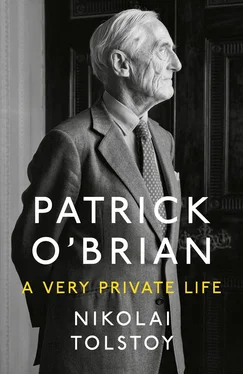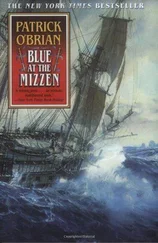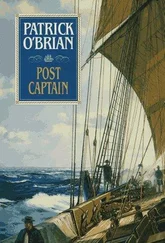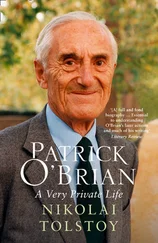The Golden Ocean is indeed a wonderfully happy book: lively, good-humoured, exciting, and convincing as a vision of a past era to an extent which only a tiny modicum of historical novels ever attains. At last Patrick had succeeded in weaning himself off gloomy and introspective themes, and thrown himself into a creation which displayed to marvellous effect his natural genius. Like Dumas recounting the grandiose excesses of Porthos, he subsequently recalled that ‘I wrote the tale in little more than a month [between Testimonies and Richard Temple ], laughing most of the time. It made no great impression, nor did I expect it to do so; but it had pleasant consequences.’ [9] Конец ознакомительного фрагмента. Текст предоставлен ООО «ЛитРес». Прочитайте эту книгу целиком, купив полную легальную версию на ЛитРес. Безопасно оплатить книгу можно банковской картой Visa, MasterCard, Maestro, со счета мобильного телефона, с платежного терминала, в салоне МТС или Связной, через PayPal, WebMoney, Яндекс.Деньги, QIWI Кошелек, бонусными картами или другим удобным Вам способом.
And all composed in that little crooked nest above the rue Arago, permeated by the sounds and smells of the south!
Reviews were generally laudatory, the most perceptive being that of the academic T.J. Binyon in the Times Literary Supplement , who described it as: ‘wholly absorbing and wonderfully funny, like the best children’s books it can be appreciated fully only by adults’. [fn6] Конец ознакомительного фрагмента. Текст предоставлен ООО «ЛитРес». Прочитайте эту книгу целиком, купив полную легальную версию на ЛитРес. Безопасно оплатить книгу можно банковской картой Visa, MasterCard, Maestro, со счета мобильного телефона, с платежного терминала, в салоне МТС или Связной, через PayPal, WebMoney, Яндекс.Деньги, QIWI Кошелек, бонусными картами или другим удобным Вам способом.
In 1970 Patrick confided to his diary that ‘I am childishly attached to the book’, and seven years later he described it to his editor Richard Ollard as ‘a book I look back upon with affection – it was such fun to write, & it came flowing out in a month or two’. As has been seen, ‘a month or two’ represents no more than pardonable exaggeration, for it is clear that his pen did indeed run happily away with him.
There followed a German contract for the novel, for which he received £40 advance and royalties. Much more rewarding was its acceptance by the John Day Company in America, whose contract provided for advances totalling $750 and royalties.
1956 proved a generally quiet and unproductive year. None of the family came to stay. I was preoccupied during the summer with preparations for my entrance examination to Trinity College Dublin, while Richard was absent from home beginning his national service in the Royal Navy. However, in January 1957 exciting news reached the little house in Collioure, which had by now been accorded the Catalan name Correch d’en Baus. On the back of an envelope containing one of her stepson Richard’s letters, my mother has written: ‘R is at Toulon! Patrick goes in eight days (on the first of Feb.) to see him, and perhaps I go also. Do I take my beautiful robe with me please?’
Unfortunately, nothing more is recorded of this event, though the happy expedition was presumably undertaken. On the other side of the envelope my mother wrote further: ‘Hurray Hurray Hurray’, and jotted down train times for travel between Collioure and Toulon. Relations could not have been closer between Richard, his father, and his stepmother, despite their enforced separation.
Throughout this time building work continued on the first-floor living room and kitchen above the casot , which among other benefits would provide room for Richard and me when we came to stay. Although Patrick concealed himself when writing in the casot , in order to avoid being distracted by the exuberant discourse of the workmen above, it was unfortunately impossible to escape them altogether, as this indignant note shows:
May 8th or 9th 1957. I am sitting here – a dark, coldish spitting late afternoon – waiting for the Men to go, so that I do not have to go up & say anything myself. Allez, bon soir. A demain – à demain, eh!
And this stupid situation (I would rather go back now for tea. I would rather have gone back some time ago) this silly indeterminate stuffed state comes from old Oliva’s ill-temper this morning which (its effect continuing) makes it impossible for me to be there watching him crépir [roughcasting] & occasionally helping without truckling.
I had thought of making some observations about all this but they are rather muddled & it really does not seem worth while. I am terrified of the English, French & American income tax people: less the people than the Thing, of which they are the righteous & I am sure complacent powerful hands. Blind but percipient tentacles, slow, slow, ridiculous; & then terribly fast & efficient.
If the English do not send the rebate we are destroyed: as it is can we ever pay for all this ghastly house? It engulfs material: and now it no longer belongs to me at all: I am, at times & on sufferance, a dull kind of labourer, while the capable ones – Oliva’s rough capability is depressing, very – while they walk about & spit & piss on the walls.
Now the silly, silly little man is peering about outside. I pretend not to see him. He is looking for the saw. I still do not see him. Enlightened self interest. He was not looking for the saw but the marteline & the marteau. Just how silly can one get?
Fortunately Patrick’s elder brother Bun in Canada came to their aid with a generous ‘loan’ (seemingly intended as a gift) of several hundred dollars. Despite this, Patrick underwent bouts of restlessness and discontent. In November my mother wrote sadly to Richard, saying that his father and Willy Mucha had taken to sitting up late, complaining about their common lack of inspiration.
Fortunately, it was shortly after this that Patrick’s literary career revived. In due course, the commercial success and gratifying critical acclaim of The Golden Ocean led to a request for a sequel. On 30 December 1957 Rupert Hart-Davis signed a contract with Patrick for a novel to be entitled ‘THE VOYAGE OF THE WAGER’. As with its predecessor, the stipulation was for £100 advance, half to be paid on signature and half on delivery.
Patrick breakfasting on the balcony of the casot in more contented mood
In the course of researching Anson’s voyage for The Golden Ocean , Patrick had come across the extraordinary plight of the crew of a ship of the fleet, which he had found no occasion to mention in the novel. On 14 May 1741 the storeship Wager was wrecked on the coast of Chile, a terrible storm preventing the crew’s rescue. The survivors underwent appalling hardships during their protracted struggle for survival in that desolate region. Eventually, a remnant managed to reach Valparaiso, whence they sailed to England, arriving in February 1745. This fortunate group included Midshipman (later Admiral) John Byron, grandfather of the poet. In 1768 he published a vivid account of their ordeal, which drew great attention then and thereafter.
Читать дальше












